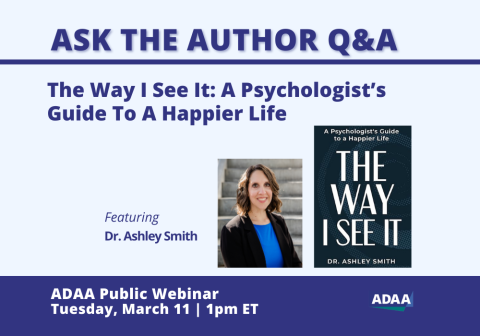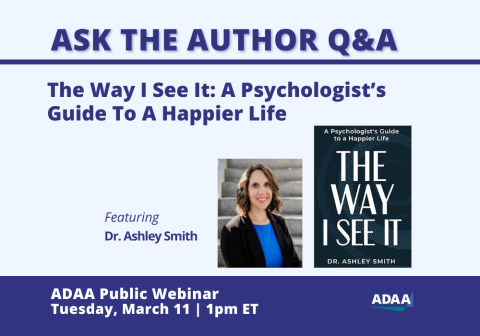How to Talk About Suicide, from a Psychologist Who Lost a Loved One
How to Talk About Suicide, from a Psychologist Who Lost a Loved One

It can be difficult to talk about suicide. It’s a taboo topic, fraught with discomfort. Couple that with some harmful misunderstandings and our tendency, as a society, to shy away from hard conversations, and it’s no wonder that you may struggle to find the right words.
As a psychologist who has lost a loved one to suicide, I have been on many sides of this conversation. My hope is to share some guidance on how to talk about this important topic.
What to Say When You Are Concerned
There’s a myth that asking someone about suicide may cause them to become suicidal. I cannot stress this enough. That is not true.
Asking someone about suicidal thoughts will not plant the idea. It will, however, open the door for conversation. With that simple but clear question, you are communicating that you are a safe person to talk to.
What to Say When Someone Discloses Suicidal Thoughts
It can be excruciating to hear that someone you care about is having thoughts of suicide. You may experience fear, shock, sadness, or anger. While those are all completely understandable, please don’t let them dictate your response.
You may be tempted to say:
“How could you even think that?”
“You wouldn’t do that to me, would you?”
“How do you think it makes me feel to hear you say that?”
“Why are you depressed? You have so much to live for!”
“That’s selfish.”
Those comments might make your loved one feel worse, and they will learn that you aren’t someone they can talk to.
Instead, try:
“Thank you for trusting me enough to share this. We’ll figure it out together.”
“I’m so sorry you’re struggling. I’m here for you.”
“I know it feels overwhelming right now, but it won’t always feel this way.”
“You are not alone.”
Then, be curious and compassionate. Ask questions. When did they start to feel this way? Is there anything in particular that triggered it? Have they taken any action steps (e.g., making a plan, writing a note)? Do they have reasons to keep living?
Sometimes talking things out can help them feel better, getting through the immediate crisis. Talking may build hope, which is a lifeline. And sometimes you are simply gathering helpful information that you can share with their parent, partner, or provider.
As a teen, you may worry that your friend will get mad at you if you tell someone, but it is too big of a responsibility to keep to yourself. Talk to a trusted adult like a parent or school counselor, or call/text 988 to talk with someone who can help 24/7.
Parents, treat suicide as a real concern. Do not leave your child alone and make sure that potentially dangerous items are secure (as in absolutely locked away or removed from the house altogether). You can also call 988 or talk to your child’s doctor, school counselor, or therapist. If you do not feel confident in your ability to keep your child safe, take them to the nearest emergency room or call 911.
The same advice goes for anyone whose partner, family member, or friend is struggling.
As you take action, be honest and supportive. Say something like “We’re going to call the crisis hotline now. They will have people who can help us. We’ll get through this together.”
What to Say to Someone Who is Grieving
It sucks to lose a loved one under any circumstance, but suicide is especially hard. Loved ones often struggle to understand why it happened. They may feel guilt, anger, or shame in addition to sadness.
I start by saying, “This sucks. I’m so sorry this happened.” I ask if they want to talk about it. Then I listen. If it seems relevant, I tell them it’s not their fault. If they are open to hearing it, I tell them it’s not their loved one’s fault, either. Their brain played tricks on them and convinced them there was no other option. I tell them I am here for them and sit in their pain with them, as long as they need. Read My Suicide Notes.
Let’s Choose Our Words Carefully
Notice how the phrases “I have to…” and “I get to…” have different tones – one is an obligation to dread while the other is privilege to appreciate. It’s amazing how much difference one little word can make. That’s because language matters. We need to be thoughtful about the words we use.
Committed v. Died by
I deliberately use the phrase “died by suicide” rather than “committed suicide.” We don’t say someone committed a heart attack, even if their behavioral choices throughout life (e.g., lack of exercise, poor diet, smoking) contributed to their demise. Rather, we view their death as something that happened to them, not something they actively, willfully chose.
When you truly understand suicide – how someone gets to the point where they lose their life – then you know that it is a battle lost. It is not a choice in the way that “committed” implies any more than a heart attack is.
Adjusting our language to reflect this more accurate understanding is important for removing stigma and shame, which can make the grieving process for loved ones more difficult. It also helps us, as a society, shift our thinking, which will, hopefully, lead to more efforts to effectively prevent unnecessary deaths.
Bad Thoughts v. Self-Harm Thoughts
I also caution against using the term “bad thoughts” when you talk to someone who may be experiencing suicidal thoughts. If you ask someone if they are having “bad” thoughts, they might shut down. Instead, be more neutral yet precise by asking “Are you having thoughts about self-harm?” or “Do you want to die?” Removing the judgment (“bad”) paves the way for more open, honest, and helpful conversations.
Given how prevalent suicide is, it is important for us to get comfortable having real, honest conversations about it.





















